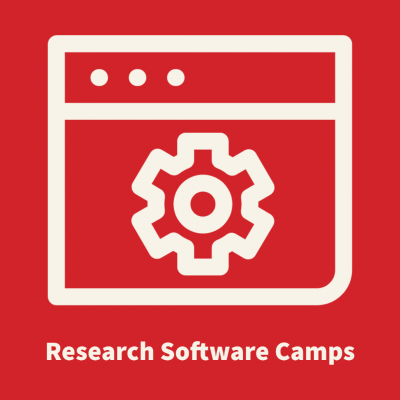Highlights from week one of our Research Software Camp on research accessibility
Highlights from week one of our Research Software Camp on research accessibility
Posted on 26 February 2021
Highlights from week one of our Research Software Camp on research accessibility
 It’s the end of the first week of our inaugural Research Software Camp which is focussed on different aspects of research accessibility. We’ve been exploring the topic through a mixture of live sessions, guides on our website and discussions on social media. Here are some of the highlights from week one.
It’s the end of the first week of our inaugural Research Software Camp which is focussed on different aspects of research accessibility. We’ve been exploring the topic through a mixture of live sessions, guides on our website and discussions on social media. Here are some of the highlights from week one.
Live sessions
The week kicked off with a keynote talk by Chris Hartgerink from Liberate Science on ‘The Social Model of Inaccessibility’. Watch the talk here. We then ran a live Q&A session in which Rachael Ainsworth, SSI Community Manager, asked Chris questions submitted by participants on Slido. Watch the Q&A here.
We also hosted a two-part workshop called Sustainable Software Development for Researchers, presented by Tobias Schlauch, Carina Haupt and Martin Stoffers from the German Aerospace Centre. During the workshop, researchers brought their own script to make it ready for publication.
Guides and blog posts
In a guide written for our Research Software Camp, Malin Sandström, INCF Community Engagement Officer, shared her Top tips for managing your open-source project community effectively. This guide gives advice on building a community around something you’ve developed, from making it easily findable to making space for contributors to grow.
Tobias Schlauch, Carina Haupt and the software engineering group at the German Aerospace Centre put together a guide on How to make your script ready for publication. The guide gives a short overview of the steps recommended to make your code sustainable, enabling others to use and modify it.
We also compiled useful external Resources to help make your research accessible in a signposting blog post. We broadly divided the resources into different aspects of research accessibility, including open research, the FAIR principles, reproducibility of research and some of the less talked-about aspects, such as equity in science, citizen science and events.
Social media
We’ve been sharing useful content and having discussions on our Twitter and LinkedIn pages. You can also see a curated selection of content on Wakelet. Follow our content and join in the discussion using #RSCamps.
Coming up
It’s been a week filled with lots of activities and questions around research accessibility, and there’s already so much that we’ve learnt from it. We’re looking forward to next week when we’ll be hosting the workshop “Boost your Research Reproducibility with Binder” by the Turing Way. The workshop’s sold out, but you can sign up to the waitlist as some tickets might become available.
We’ll continue to post interesting polls and discussion on social media, so make sure you join in the conversations on Twitter and LinkedIn using #RSCamps.
We also have more guides and blog posts on various aspects of research accessibility coming up, such as how to enhance the inclusivity and accessibility of your online calls.
Future camps
We welcome anyone involved with research and research software from all career stages to attend our Research Software Camps. We will run Camps twice a year, introducing and exploring different topics around research software. If you have topics you’d like us to explore, send us your suggestions and we’ll consider them for future Camps.
Sign up to our mailing list to receive updates about future Camps.

